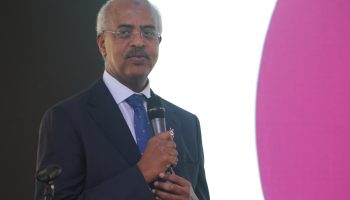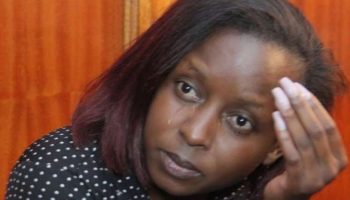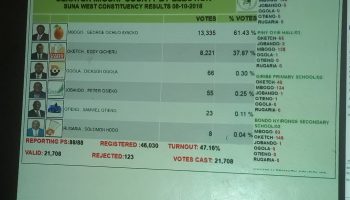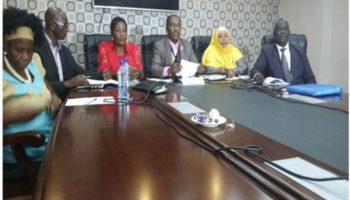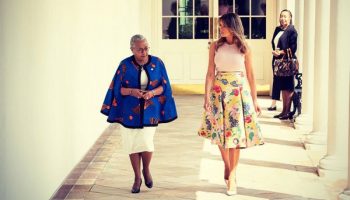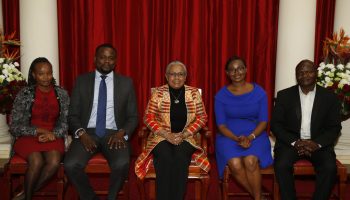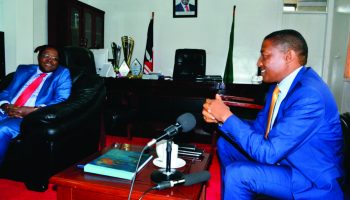- April 13, 2020
- Posted by: p mulee
- Category:
By Reporter
Education officials this week will review the KCPE and KCSE exams among other critical programmes with a view to postponement.
Sources according to the Star a plan to ‘adjust’ school programmes is in the pipeline as the spread of coronavirus throws the school calendar into disarray and spreads confusion.
The disease can spread like wildfire in crowded classrooms, dorms and cafeterias.
President Uhuru Kenyatta ordered learning suspended progressively from March 15 to stem the spread of the coronavirus in learning institutions, from primary schools through universities.
Uncertainty surrounds the reopening of any learning institution and educators.
A source familiar with the consultations around adjustment of programmes says it’s still a puzzle as changes can only be made where there is certainty about schools reopening.
predict the lockdown could well eat into part of the second term.
The Star has established top officials in the Education ministry, led by CS George Magoha and Basic Education PS Belio Kipsang, were locked in consultations last week about the future of education after the coronavirus crisis.
However, a source familiar with the consultations around adjustment of programmes says it’s still a puzzle as changes can only be made where there is certainty about schools reopening.
Already, three weeks of the school calendar have been lost in the shutdown. Its impact on all activities cannot be underestimated.
These activities include the national examinations for KCPE and KCSE, delayed admission to universities and colleges, and even implementation of the new Competency-Based Curriculum.
Already called off are the KCSE practical examinations, such as Agriculture, that were to begin in February. So, too, were the end-of-term exams.
Sporting and arts activities and internship programmes for students in higher learning are at a standstill.
Uncertainty also surrounds the possibility of the schools reopening for term two, as scheduled on May 4.
Mercy Karogo, the Kenya National Examination Council acting CEO, said on Sunday the sector is locked in consultations on issues such as the effects of the Covid-19 pandemic on national examinations.
The Kenya Certificate of Primary Education (KCPE) examinations are scheduled to start on November 2 and end on November 3, while the Kenya Certificate of Secondary Education (KCSE) exams are set to start on November 4 and end on November 30.
“We are consulting and will communicate in due time on any decision, but most important right now is listening to the medical experts and doing as they say so everything stabilises,” Karogo said.
The uncertainty around schools reopening is causing a headache among education stakeholders worried about delays likely to hit the school calendar.
Kenya Union of Post Primary Education Teachers (Kuppet) secretary-general Akello Misori said, “It is inevitable for the ministry not to extend the schools lockdown.”
He argued that as long as there are restrictions on movement and gatherings, “schools will remain closed”.
In a letter to the Education CS last week, the union called for the reorganisation of the school calendar as soon as the virus has been contained.
“The minister should discuss the idea of rethinking a new school calendar of events by reorganising term dates… That means the KCPE and KCSE exams cannot go on as proposed,” Misori said.
He also argued the reorganisation will save parents the burden of losing out on fees that had been paid but not utilised during the first term.
Disruption of the school calendar continues to throw parents, learners and educators into confusion over how the time lost could be recovered.
Kenya Parents Association chairman Nicholas Maiyo recommended the government put up measures to ensure parents are compensated for the time and money lost.
However, for private institutions, Misori argues there’s a tough balancing act between keeping staff in school and compensating for the time not utilised during the first term, as the resources for the two are drawn from fees.
“The government should consider providing a stimulus to these schools because it has asked employers to try and not lay off staff,” Misori said.
The shutdown is in its fourth week and currently coincides with the April holiday meant to last for two weeks.
The shutdown has affected 13 million primary and secondary school children. Another half a million in universities have been affected.
Already, the end-of-term examinations, scheduled at the end of March and the beginning of April, did not take place.
If extended to the end of April, then the learners will have spent six weeks and will now be consuming the second term of the school calendar.
“As it is at the moment, postponing the examination is not a matter of if but when,” Maiyo said.
He added, “If the exams are affected, admission to secondary schools for this year’s KCPE candidates will be greatly affected.”

